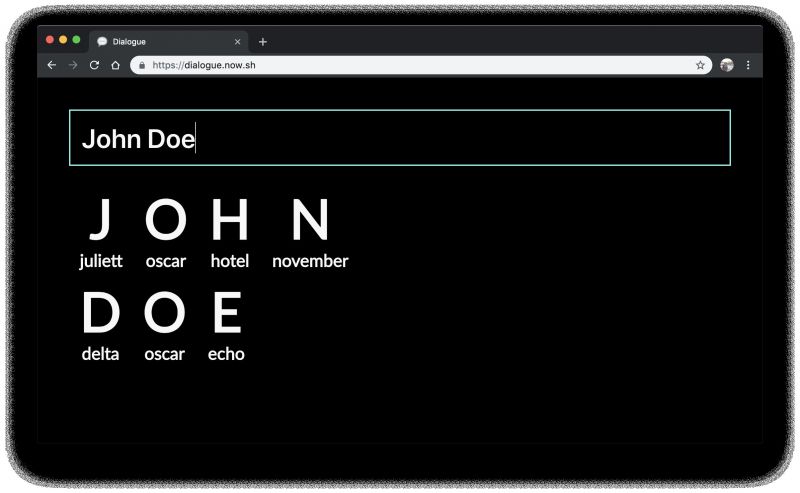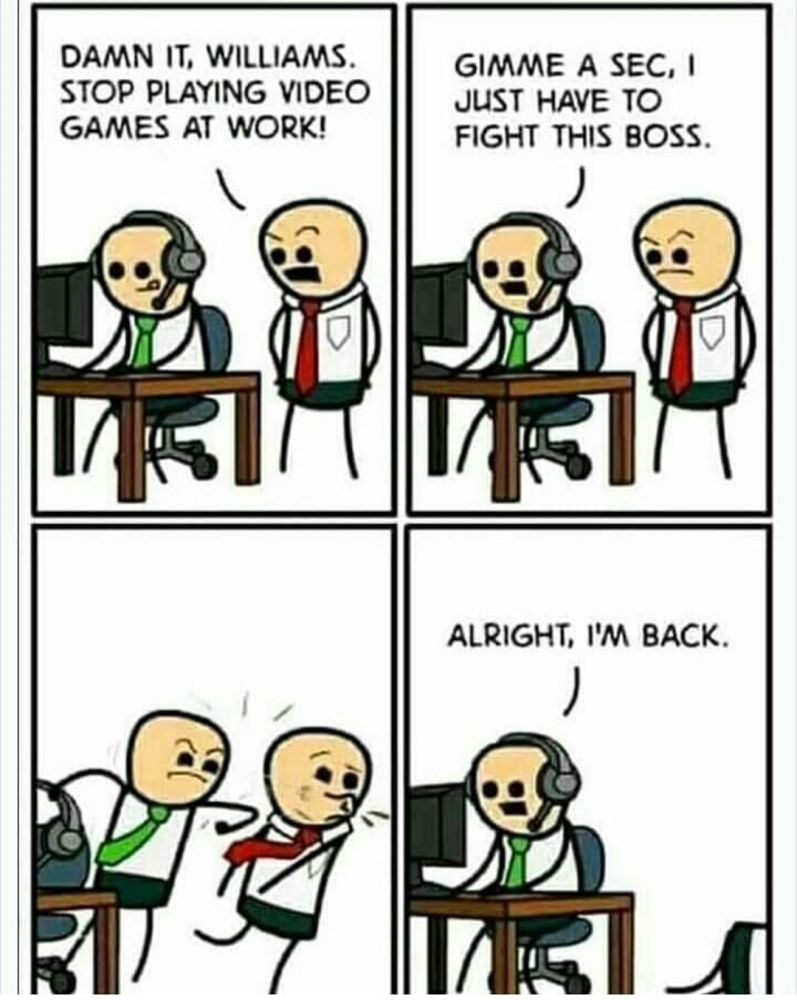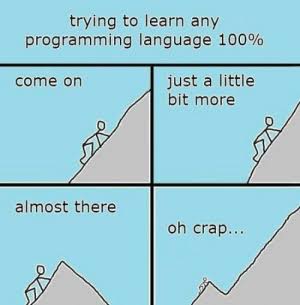Details
-
AboutJust a guy that started coding, wants to land a job and become extremely good at it.
Joined devRant on 9/26/2018
Join devRant
Do all the things like
++ or -- rants, post your own rants, comment on others' rants and build your customized dev avatar
Sign Up
Pipeless API

From the creators of devRant, Pipeless lets you power real-time personalized recommendations and activity feeds using a simple API
Learn More
-
I'm going home!
For the past six months I've been on a contract that has kept me away from my family. On Saturday I will finally be moving back home. I'm elated to be seeing my family again, but I'm scared because I don't have a new job lined up. Wish me luck. -
So yesterday our team got a new toy. A big ass 4k screen to display some graphs on. Took a while to assemble the stand, hang the TV on that stand, but we got there.
So our site admin gets us a new HDMI cable. Coleague told us his lappy supports huge screens as he used to plug his home TV in his work lappy while WFHing. He grabs that HDMI, plugs one end into the screen, another - into his lappy and
.. nothing...
Windows does not recognize any new devices connected. The screen does not show any signs of any changes. Oh well..
Site IT admin installs all the updates, all the new drivers, upgrades BIOS and gives another try.
Nothing.
So naturally the cable is to blame. The port is working for him at home, so it's sure not port's fault. Also he uses his 2-monitor setup at work, so the port is 100% working!
I'm curious. What if..... While they are busy looking for another cable, I take that first one, plug it into my Linux (pretty much stock LinuxMint installation w/ X) lappy,
3.. 2.. 1..
and my desktop is now on the big ass 4k fat screen.
Folks. Enough bitching about Linux being picky about the hardware and Windows being more user friendly, having PnP and so. I'm not talking about esoteric devices. I'm talking about BAU devices that most of home users are using. A monitor, a printer, a TV screen, a scanner, wireless/usb speaker/mouse/keyboard/etc...
Linux just works. Face it
P.S. today they are still trying to make his lappy work with that TV screen. No luck yet. 17
17 -
Not exactly wrong there. I got started at 10 with odds and ends for fun.
Took a semester of it in college before switching because the compiler and I didn't get along.
Only to pick it back up via self-study 10 years later because the programmer who came on board for a side project never showed up and I wanted to keep things moving.
10 years later still, I'm now running a web design shop full time.
-
After countless hours trying to spell my name for customer service over the phone, I made a little webpage that helps me spell words phonetically! 💬
https://dialogue.now.sh 34
34 -
Why does every designer has to be a complete asshole? Wtf is up with them? You take a day on your fucking design, i implement your fucking design, and then when you see it, you want it completely different again.1
-
!rant
After over 20 years as a Software Engineer, Architect, and Manager, I want to pass along some unsolicited advice to junior developers either because I grew through it, or I've had to deal with developers who behaved poorly:
1) Your ego will hurt you FAR more than your junior coding skills. Nobody expects you to be the best early in your career, so don't act like you are.
2) Working independently is a must. It's okay to ask questions, but ask sparingly. Remember, mid and senior level guys need to focus just as much as you do, so before interrupting them, exhaust your resources (Google, Stack Overflow, books, etc..)
3) Working code != good code. You are an author. Write your code so that it can be read. Accept criticism that may seem trivial such as renaming a variable or method. If someone is suggesting it, it's because they didn't know what it did without further investigation.
4) Ask for peer reviews and LISTEN to the critique. Even after 20+ years, I send my code to more junior developers and often get good corrections sent back. (remember the ego thing from tip #1?) Even if they have no critiques for me, sometimes they will see a technique I used and learn from that. Peer reviews are win-win-win.
5) When in doubt, do NOT BS your way out. Refer to someone who knows, or offer to get back to them. Often times, persons other than engineers will take what you said as gospel. If that later turns out to be wrong, a bunch of people will have to get involved to clean up the expectations.
6) Slow down in order to speed up. Always start a task by thinking about the very high level use cases, then slowly work through your logic to achieve that. Rushing to complete, even for senior engineers, usually means less-than-ideal code that somebody will have to maintain.
7) Write documentation, always! Even if your company doesn't take documentation seriously, other engineers will remember how well documented your code is, and they will appreciate you for it/think of you next time that sweet job opens up.
8) Good code is important, but good impressions are better. I have code that is the most embarrassing crap ever still in production to this day. People don't think of me as "that shitty developer who wrote that ugly ass code that one time a decade ago," They think of me as "that developer who was fun to work with and busted his ass." Because of that, I've never been unemployed for more than a day. It's critical to have a good network and good references.
9) Don't shy away from the unknown. It's easy to hope somebody else picks up that task that you don't understand, but you wont learn it if they do. The daunting, unknown tasks are the most rewarding to complete (and trust me, other devs will notice.)
10) Learning is up to you. I can't tell you the number of engineers I passed on hiring because their answer to what they know about PHP7 was: "Nothing. I haven't learned it yet because my current company is still using PHP5." This is YOUR craft. It's not up to your employer to keep you relevant in the job market, it's up to YOU. You don't always need to be a pro at the latest and greatest, but at least read the changelog. Stay abreast of current technology, security threats, etc...
These are just a few quick tips from my experience. Others may chime in with theirs, and some may dispute mine. I wish you all fruitful careers!229



















